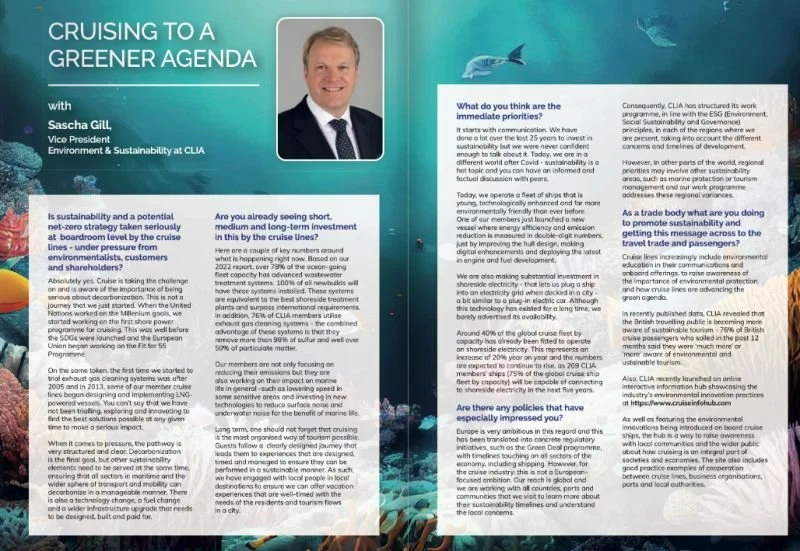Long term, one should not forget that cruising is the most organized way of tourism possible.
Nice interview featuring Sascha Gill (DR), #CLIA Vice President Environment & Sustainability
In this Q&A, Sascha Gill focuses on the priorities of the cruise industry in terms of decarbonisation, the long-term investment of cruise lines to achieve net zero carbon by 2050 and responsible tourism.
💬 "Based on our 2022 report, over 78% of the ocean-going fleet capacity has advanced wastewater treatment systems. 100% of all newbuilds will have these systems installed. These systems are equivalent to the best shoreside treatment plants and surpass international requirements.
In addition, 76% of CLIA members utilize exhaust gas cleaning systems. There are different types of systems on the market, though the combined advantage of these systems is that they remove more than 98% of sulfur and well over 50% of particulate matter", says Sascha Gill (DR) to Travel Matters.
He continues: "Long term, one should not forget that cruising is the most organized way of tourism possible.
Our guests follow a very clearly designed journey that leads them to experiences that are designed, timed and managed to ensure they can be performed in a sustainable manner.
As such, we have engaged with the people in local destinations to ensure we can offer vacation experiences that include local engagement that is well-timed with the needs of the local population and tourism flows in a city".







